#ESPECIALLY with characters based in specific historical contexts
Text
...You wanna see something silly?
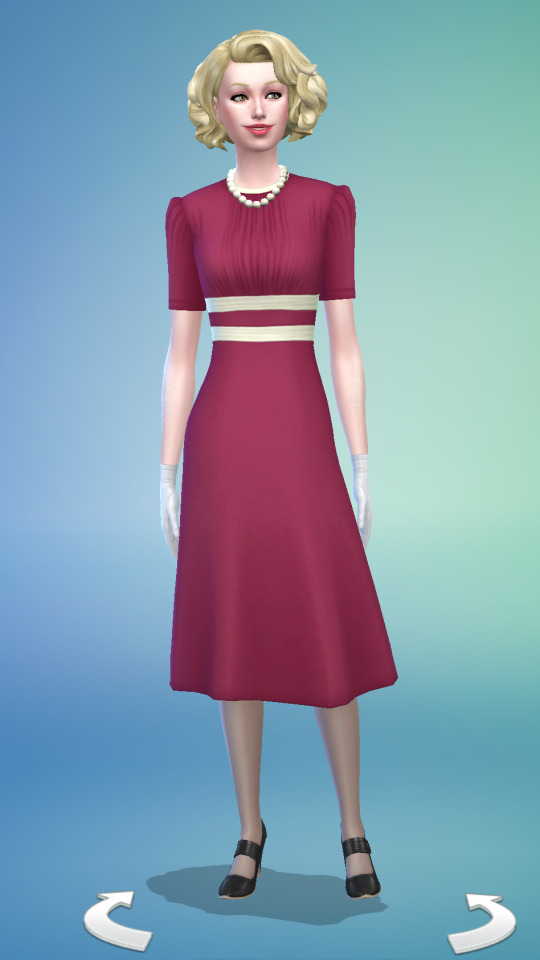


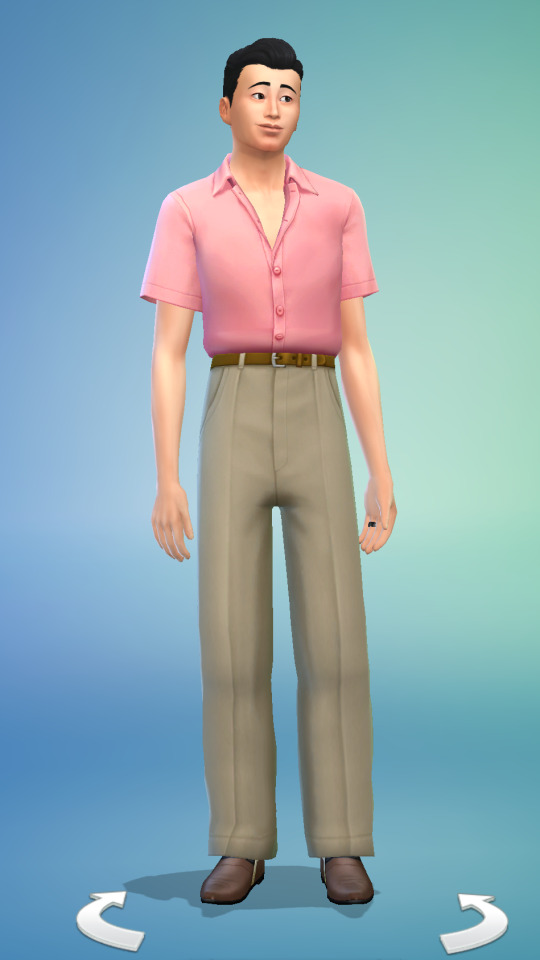

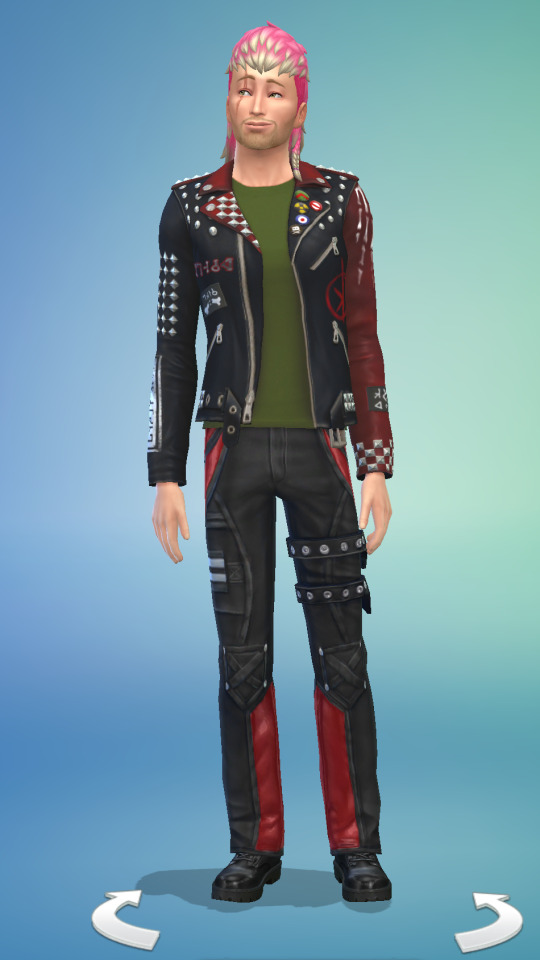
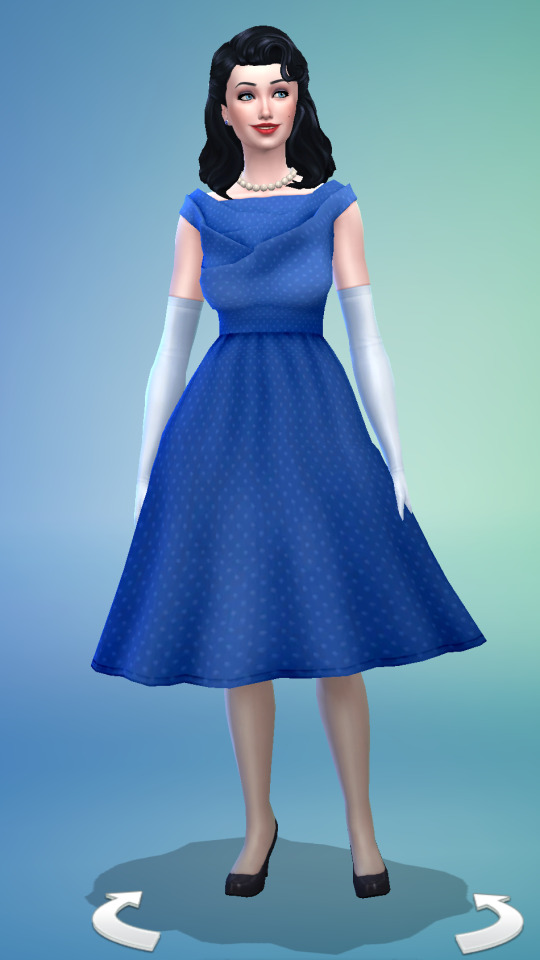
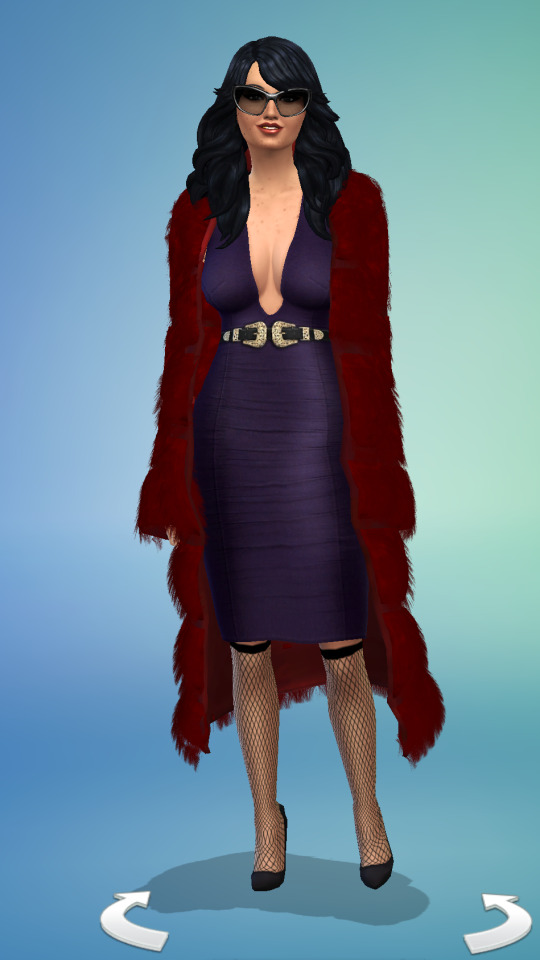

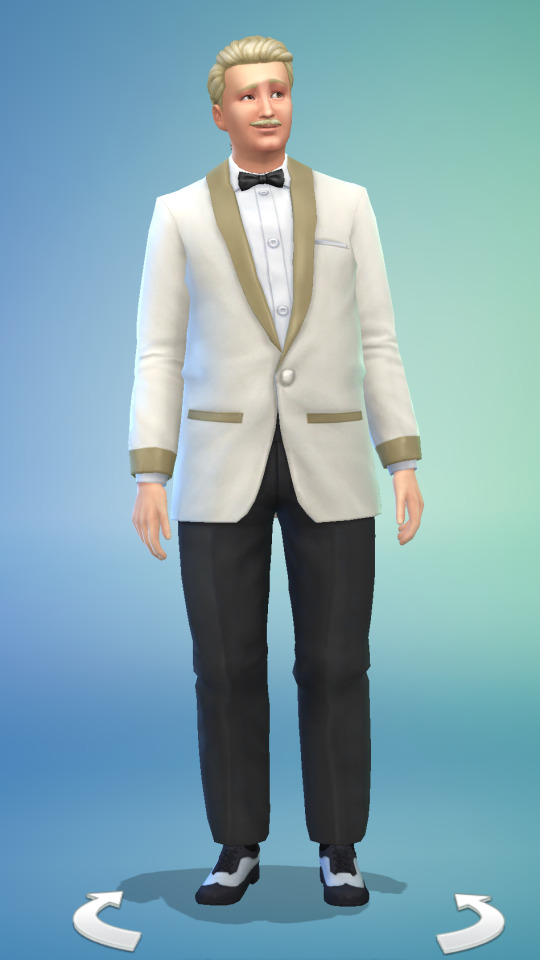
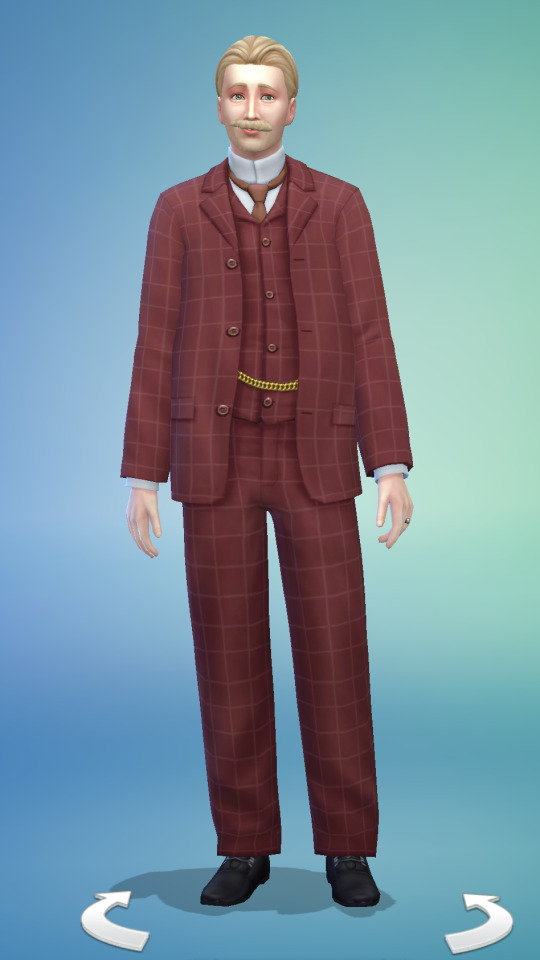

#¯\_(ツ)_/¯#what can i say i like gender swap aus#ESPECIALLY with characters based in specific historical contexts#(this is human life stuff just to be clear)#redlady speaks#hazbin posting#hazbin hotel#angel dust#alastor#husk#niffty#sir pentious#cherri bomb#vox#valentino#velvette#mimzy#rosie#carmilla carmine#genderbend
31 notes
·
View notes
Note
So if Superman is Moses and Captain America is David, do you think that Spider-Man is Job?
He's always miserable, with suffering piled upon suffering and loss piled upon loss. But he always has faith in the goodness of humanity and the righteousness of his duty. He maintains his faith throughout all of his trials, and that's what makes him a hero.
(I was thinking about how Judaism and Xianity see G-d differently, and more specifically how they see faith and obedience to G-d differently. In Judaism faith isn't about obedience, and G-d is often an allegory for the world just as the world is often an allegory for G-d — at least that's how I interpreted the fact that 90% of our prayers are thanking G-d for creating a specific aspect of material reality. So if the story of Job is, from a Jewish perspective, isn't about unwavering obedience to a single entity but instead about having unwavering faith in the goodness of the world, then it fits Peter Parker almost to a T, right?)
Wow ok I am SO pissed off that I wrote the answer to this for a full hour and now it's just fucking gone because Tumblr decided not to publish it when I hit post. What the very fuck. So I'm going to try to shorten what I wrote a little and hopefully it'll still make sense. But this is a great ask, for real.
Anyway. I feel like something that's been lost in my most popular posts is that my central thesis when it comes to the Jewish nature of superheroes is not that there's a 1:1 between every hero and a historical, mythological, or Tanakhi figure. The central thesis is, instead, that the very concept of heroism as presented in comics is tied to the Jews who created the genre; it's just very easy to demonstrate these kinds of concepts with direct allegories that have such clear parallels. I actually have a third secret parallel that'll probably never see the light of day, between Magneto and Aher (and like, does anybody even know who Aher is? he's not exactly a well known figure).
One of the reasons I haven't posted this comparison is that it is largely thematic, and therefore requires considerably more explanation, especially for goyim or those who aren't familiar with Aher's story (אלישע בן אבויה fyi if that means anything to y'all). But that's sort of my point - it's much easier to point that Superman is literally Moses and Cap and David serve very similar purposes as characters than to talk about the fact that superheroism is based in Jewish values and traditions: the very idea that heroes are meant to make the world better through action as opposed to sacrifice, the value assigned to every single life (he who saves one life etc), characters becoming better people over time rather than going through dedicated redemption arcs, etc (I can't remember what I wrote here and it's driving me nuts thank you very much for asking).
I gave a lot of context here to the difference between Golden Age and Silver Age writing here but honestly again that took forever and I don't feel like typing it all up, so I'll just point out the basic facts which are that the people creating the comic book industry in the late 30s and early 40s were desperate Jews trying to save their people across the ocean, and also were only about ten or twenty years removed from having lived in the Old Country themselves. Their life and culture was intensely Jewish, they'd grown up in specific Jewish tales. By the time we get to Spider-Man, the situation is entirely different. It's been 25 years of comics (Superman debuted in '38, Spider-Man in '63), and the Jewish foundations of comic books and heroism are already baked in to the genre. Yes, the industry is still overwhelmingly Jewish, but now the separation from a purely Jewish upbringing and Jewish separatism in the Old Country is forty years old. The attempt now is to specifically make stories that haven't already been told - for Spider-Man, the main concept was that there had never been a teen hero before who stood on his own - one that wasn't part of team like the fantastic four, or, more typically, a sidekick.
All these differences actually mean that the coding of these characters is very different. Superman being Moses was intentional; Cap was created as anti-Nazi propaganda. Spider-Man was and is Jewish because he is such a pure example of what Jewish heroism is. He's flawed, he's angry, but he can't help himself from trying to save... Well, everyone. It is, however, important to note that he debuted a long while before Magneto was confirmed Jewish (I don't actually know if he was the first, bc I'm having trouble finding that kind of info easily on the internet, but he's certainly one of the most notable Marvel Jews ever, and he was confirmed as a Holocaust survivor relatively early); it was a whole before Marvel realized you could make somewhat prominent characters Jewish, let alone heroes, and by then Spider-Man was one of their best selling characters, and they're still afraid to this day to alienate readers by confirming him as such.
But moving onto Job - I think I have a very different read of the Book of Job from you, but that's not surprising to me; the Book of Job is incredibly opaque, and I doubt that any two people will interpret it exactly the same. Also, I was raised Orthodox, and I often have very different perspectives on various Jewish things than the typical American Jew. Here's how I view it, though.
Firstly, Job absolutely does not maintain his faith throughout the entire story. Yes, initially he's presented as the most pure person ever, one who has never even been tempted to do a chet (חטא, closest translation is sin; another word would be aveira, which would best be translated as a transgression). And, indeed, it is not his deeds that lead to him losing everything; it is instead Satan who argues to test his faith by taking everything he holds dear away from his - his money, his cattle, his children, his health, his wife.
It's noteworthy, for any goyiche reader, that Satan in Judaism is not the Christian Devil who rules hell. He's an adversary, for sure, but he's more like an opposing counsel; his role is to argue for every human's guilt, especially when someone has committed a terrible aveirah. Forgive me for saying this, but he's essentially a devil's advocate. He can be viewed as the manifestation of yetzer hara on a wider scale (yetzer hara and yetzer hatov are the two natural impulses we all have in ourselves, the first to be selfish or to commit bad deeds and the other to commit good deeds and help others; this is a neutral fact rather than a condemnation of any person, and also I'm massively oversimplifying things here). Also, he's a tattle-tale.
Anyway, back to Job. Yes, at first he does maintain his faith, through the loss of his property, his children, even his health; his wife, before she dies, begs him to curse God, and yet he doesn't. But when she does die, he spends a chapter lamenting the day he was born, regretting that he wasn't stillborn. At first this doesn't look like a direct accusation at God, but it absolutely is, as God is in charge of life and death, but also evidence by the following:
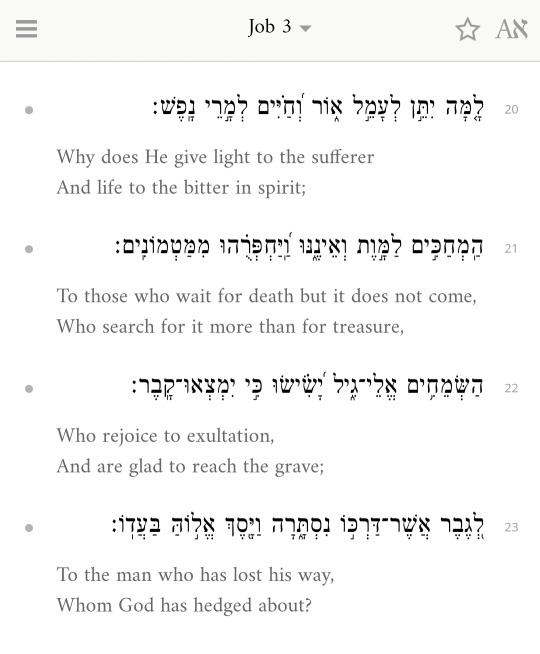
So Job does lose his faith, because as far as he can tell, he has never done anything wrong in his life ever, and yet he has been cursed to grieve everything he has ever had, and he won't even die.
Most of the book is dedicated to dialogue between himself and three of his friends, who come to the common conclusion that he must have done something wrong to deserve this treatment. But Job remains adamant: I did not deserve this.
The general lesson that many people take from this book is that God works in mysterious ways, blah blah. But like... We know, in fact, exactly why this story happened. We saw it! We saw Satan advocate to try Job! So what's the point of the book?
The point is the Job keeps asking "why". The point is that Job hears that God won't forgive his friends, despite the fact they blame him for his misfortune, and he still chooses to pray for them. The point is that he refuses to take what has happened to him quietly. Not accepting that what happened to him was just, but not accepting others' injustice either.
Ugh. I phrased all of this way better in the first draft. I really truly hate this.
Anyway my point is that Job, despite being far richer than the average Jew by the standards of his time, actually is meant to represent a very common situation: what do you when bad things happen. Do you blame yourself, or do you blame God? Do you let other people beat you when you're down, or do you stand up for yourself?
And the thing is those themes are universal, but they're not really related to Peter Parker in particular. In the shallowest sense, the kind I used to compare Cap and David or Superman and Moses, they do not have similar stories or backgrounds. Job has everything, and he loses it all, and he mourns all of it, including the property and money; Peter Parker is working class, has never had enough money, but we see again and again that he views it as a tool rather than a goal in and of itself. Spider-Man's origin is about learning to battle your yetzer hara, your darkest impulses, and we see Peter again and again trying to do his best even though he's often being pulled by his instincts to use his power for selfish purposes. Job does not ever have to learn any such lesson; he never did anything wrong.
The one thing in common between the two stories is that they both believe that every life has value - well, if Peter is being written by a competent authors at least - with Job praying to save the men who are literally called the "resha'im", the evil ones, and with Peter being the little man's hero. But that can be said about most heroes, especially the notable ones. Hell, there's an entire double page spread dedicated to the concept in Batwoman: Elegy. This is more of another indication of Jewish values making their way into the foundations of superhero comics than it is a similarity between Job and Peter.
Also, I feel like I need to be clear. Our prayers thanking God for creating something? Traditionally are simply thanking God for creating something. I'm not saying you can't interpret it as a metaphor for the world if that's what works for you, if that's how you see God, but God was very literal to most Jews for thousands of years, and I could talk for ages and ages about the schools of thought regarding God and the world and Maimonides and shit.
Speaking of which, we need to discuss the fact that Job is literally just some guy. Like he's not a prophet, he's not a leader or a judge, he's just some rich dude who lost everything, mourned it, and then got it all back. I've talked about this before, but one of the foundational ideas of my thesis is that the similarity between prophets having powers (such as Samson but also really any judge being considered a higher authority despite not even communing directly with God) and superheroes invokes Maimonides' claim that the first degree of prophecy is the need to act for the better good, being unable to ignore the ills of the world and doing your best to fix them - that people who incapable of ignoring that urge (and Peter, despite his occasional selfishness, often prioritizes Spider-Man in his life specifically because of that urge) are possessed by the spirit of God. Literal prophecy, communing with God, cannot exist without this base level. So, in effect, Peter is significantly holier than Job.
Anyway. Again, I've definitely missed some points because of Tumblr's fuck up and I intentionally skipped most of the history lesson that gave a lot of context which I didn't feel like typing up again, but this is most of it. Sorry if this wasn't what you hoped for, but this was a really interesting thing to talk about anyway, and I'm very grateful you gave me the opportunity to think it over.
#spiderman#jew tag#jewish superheroes#jumblr#judaism#marvel comics#marvel#peter parker#gail speaks#ask#anonymous
219 notes
·
View notes
Note
reading your response to the ask about Elohim, i found it so fascinating and really wanted to learn more about jewish history. but im kinda scared to try and dive into googling it because like, for obvious reasons there is a lot of antisemitic misinformation out there. where's a good place to start learning about it all from a historical standpoint, aside from taking a college course? i hope this is okay to ask, i really don't want to stumble upon/consume revisionist history out of ignorance
Hi Anon. Thank you for your kind message. I really appreciate it.
I'm glad that you enjoyed my post about the origin of Elohim as one of the names of G-d in Judaism. Studying Jewish history and Jewish religious practice gives profound understanding and context to Abrahamic religions, as well as to the last 3500+ years of history, since at least the Late Bronze Age.
And thank you for wanting to learn more about Jewish history, and for reaching out to a Jewish person to ask about it.
My answer to your Ask is based on this answer about Jewish history, which I posted a few days ago. Not a lot of people saw it, so I feel okay about posting these links here again.
This past month especially has made me realize just how little most gentiles (non-Jews) know about Jewish history. It's been eye-opening, for sure.
And ... you're right, unfortunately. I've seen a metric shit ton of Jew-hatred going around. And so many antisemitic conspiracy theories that originated with the Neo-Nazis and the KKK.
Some people have been spreading this Neo-Nazi rhetoric intentionally, but many others have been spreading it because they don't have the context to understand that they are repeating Nazi dogwhistles.
In talking to gentiles, I often find that their knowledge of Jewish history extends to a few facts about the Holocaust. Some gentiles who have studied European history and political science may also have a general understanding of Hitler’s rise to power.
But that’s only the past several decades of Jewish history! And it's limited almost entirely to Europe!
Jews are a Levantine people. We are indigenous to Judea (the area currently called Israel/Palestine), and our history goes back thousands of years to the Late Bronze Age.
For a good overview of Jewish history, from the Late Bronze Age to the present, I would recommend two YouTube channels. That’s a good place to start. There are many history books on the subject, but a lot of them are quite dense, and the videos from these two historians will give you a good general overview if you want to learn more.
Sam Aronow:
Sam Aronow covers the span of Jewish history, from the Late Bronze Age to modern times. It is an ongoing Jewish history project that he’s been producing for the past three years, and it is in chronological order. He is currently in the early 1900s, and he comes out with a new video every month or so (he's just released a new video this month).
Click here to go to Sam’s YouTube channel, and then you can scroll back to watch his videos from the beginning, or you can decide what time period of Jewish history you’re most interested in learning about first.
Useful Charts:
Matt Baker, PhD runs the YouTube channel "Useful Charts," and he often works with Sam Aronow's channel. He has a PhD in education and religion. Matt has a very interesting story. He converted to Judaism as an adult; when he was a young man, he escaped a Christian doomsday cult, which he was born into. This gives him a unique understanding of Jewish history, especially how the "Old Testament" is often weaponized by Evangelical Christians to advance specific right-wing agendas. (As I explain below, the Old Testament is NOT the Hebrew bible. It is a chopped up, reordered, edited, and mistranslated version of the Hebrew bible.) Matt's videos on the history of Judaism are well-researched, and he breaks down different aspects of Jewish history into easy-to-follow segments.
I) Jewish History series:
Which Bible Characters are Historical.
Kings of Israel & Judah Family Tree.
Maccabees & King Herod Family Tree. (by Sam Aronow)
Classical Rabbis Family Tree.
Judaism and Jewish Denominations Explained.
Jewish Streams (Denominations) Re-Explained. (by Sam Aronow)
II) Who Wrote the Tanakh and the New Testament series:
NOTE: The Tanakh (the Hebrew bible) is an acronym that stands for Torah (Instruction), Nevi'im (Prophets), Ketuvim (Writings). It is NOT the same as the "Old Testament" in the Christian bible. The Christian editors of the "Old Testament" cut up the Tanakh and reordered it in a way that doesn't make any sense for Jewish practice. Many Christian bibles (such as the King James Version) also intentionally mistranslate the Old Testament to advance specific religious, political, and social ideologies of their time.
Who Wrote the Torah.
Who Wrote the Prophets.
Who Wrote the Writings.
I am including links to Matt's series on who wrote the New Testament, because many people who were raised Christian were never given a historical context for the people who wrote the books of the New Testament.
Who Wrote the Apocrypha. (The Apocrypha are later-written Jewish books that are not included in the Tanakh, but do appear in some Christian bibles, like the Catholic bible)
Who Wrote the Epistles. (Paul's Epistles were written before the Gospels, which is why the Epistles are linked first.)
Who Wrote the Gospels and Acts. (The Gospels were all written long AFTER Jesus' lifetime, and AFTER the destruction of the Second Temple in 70 AD. They were NOT written by the people they are attributed to.)
Who Wrote Daniel, and Who Wrote Revelation. (Matt includes Daniel from the Nevi'im [Prophets] as well as Revelation from the New Testament in this video to discuss apocalypticism in Jewish and early Christian tradition.)
#jumblr#judaism#jewblr#jewish history#jewish#NOTE - I report and block antisemites. If any antisemites comment on this post you will be reported and blocked. You have been warned.
80 notes
·
View notes
Text
“What a delightful library you have at Pemberley, Mr Darcy!”
“It ought to be good,” he replied, “it has been the work of many generations.”
“And then you have added so much to it yourself, you are always buying books.”
“I cannot comprehend the neglect of a family library in such days as these.”
This conversation is intriguing because, as is often the case in P&P, there is so little narrative framing or comment that you have to make quite a few assumptions based on how you read the characters. We don’t even hear Elizabeth’s reaction to this interchange and don’t know how she takes it (though when Darcy later tries to talk to her about books, she’s sure that their tastes are so wildly different that they won’t have anything to talk about).
In any case, both fans and critics have come away with a lot of different interpretations of Darcy’s book-buying sprees and, in particular, what he means by “such days as these.”
I just read an article that dismissively characterized it as a stuffy civilization-is-falling-down-around-us-in-these-degenerate-times thing showing the basic conservatism of his mindset, and while that article was particularly hostile, it’s a pretty common reading. And you can read it that way, but frankly, it doesn’t seem the most natural reading in the context of either the scene or his overall characterization.
Darcy is repeatedly associated with books and reading and general intellectualism. The Pemberley library links his family pride and his sense of legacy with his personal inclinations—as an individual, he’s bookish, clever, and fairly cerebral. He reads, he buys new books, he enjoys philosophical debates, his response to Elizabeth’s assertion of their different tastes in books is “cool, then we can argue about them :D”, he encourages his teenage sister’s artistic interests and defends her disciplined approach to them when she’s not even there, he collects fine and apparently borderline-incomprehensible paintings, he’s dismissive about the expected accomplishments of upper-class women in favor of reading (partly bc Elizabeth has been reading, but it’s not surprising that a man responsible from age 23 for the education of a young girl has Thoughts on the ongoing female education debates of the time).
All of this is to say that Darcy is engaged with what was then contemporary culture and discourse. This is especially the case if you go with the time of his creation, 1796, but it doesn’t make a huge difference because these debates were still ongoing in the 1810s, and he rarely refers to specific figures and instead prefers more generally familiar concepts and arguments (or chooses to rely on those in conversation with women), and in any case, the English artistic movements of the 1810s owed a lot to those of the late eighteenth century.
And a big eighteenth-century debate was about the merits of modern art, especially literature, compared to ancient art. Historically, there was a lot of deference in English literature to ancient models and dictates, and controversy over newer forms like the novel (in English) but also in poetry and drama and essays. To some people, it seemed like art was going horribly astray by diverging from the ancients (despite the continuing strong influence of Classicism). Others thought the artistic movements of the time were fucking awesome valuable and important, which is generally Austen’s position (most famously in the defense of the novel in NA).
So when Darcy speaks of “such days as these,” I don’t think this is coming from snooty disengagement from the current literary zeitgeist, but rather, the reverse. He’s seeing all these ideas being hotly debated in various essays and treatises, and the English novel taking modern form, and poetry undergoing changes that will only become more drastic, etc etc, and thinks—this is important. Anybody with a family library should be adding the literature that’s coming out at this time.
TL;DR I think Darcy has an affinity for modern art/literature/culture in any case, but also, is so convinced of the importance of the literary “moment” he’s living in that he thinks he’d basically be shaming his ancestors if he didn’t include it in the collection that he’ll pass down to the next generation as it was passed to him.
#it's not just that people like him need to maintain family libraries with what's currently out there#but that he thinks that what's happening /right now/ is a really big deal that needs to be added for its own sake#i find it a bit weird that this reading seems unusual but some people are very committed to stuffy conservative darcy so#i do go with the c. 1796 setting which makes this fairly funny... lyrical ballads is coming out in two years#and darcy can't know that! it's just. something is going on! clearly! what is the point of being rich if you don't preserve this stuff???#anghraine babbles#austen blogging#austen fanwank#lady anne blogging#anghraine's meta#fitzwilliam darcy#pride and prejudice#jane austen#tangentially: this is kind of associated in my head with how the preceding darcy-like characters are pretty much all 18th century#elizabeth has this whole beatrice/rosalind legacy and the debt to much ado about nothing is obvious#but darcy isn't like benedick. he's like... lord orville if he were interesting.#so he's a fairly distinctly /modern/ man in the original context where he's often now seen as a quintessential/old-fashioned figure#and it makes sense that he would have a lot of affinity with modern culture where elizabeth is more detached
1K notes
·
View notes
Text
feeling enthusiastic tonight so i wanted to talk about my favourite things about the languages i speak/am studying!
mandarin chinese:
singular character words are fairly rare! unlike english, due to the high number of homophones in the spoken language, most words are comprised of two or more characters for clarity's sake. for example, while 孩 does by itself mean child, usually it's combined with another character (ie 孩子,小孩儿,etc.) due to it sounding similar to other words (还,骸).
in spoken language, you often need the entire context to understand the meaning. due to homophones, if you're missing the surrounding context, then it can be easy to misunderstand what someone's saying.
homophones generally! i've been known to love a good tongue-twister, and being a native chinese speaker is definitely part of that—there's just so many good ones! this also crops up in social media/memes, where a homophone is substituted for the original character(s).
the written language! i'm definitely more biased towards simplified chinese, but i can still read traditional chinese, and i think chinese is one of the most beautifully-written languages. it's just so logical! the strokes follow a certain order, and everything is contained in "boxed" that are very pleasing.
german:
poetry! german is known for literature, and i love reading poetry in german, even if not having studied it in a while means i have to look things up pretty frequenty ^^°°
the pronunciation! while i'm definitely at an advantage since i have an ear for languages and can nail german pronunciation at a natural level, i love speaking german—especially the longer words! i love the way the letters sound together (i'm definitely biased towards the eu/äu combination haha).
the ß!
gothic script—this appears a lot in historical german print, and i love it, even if it does make it a bit of a challenge to read anything haha.
kurmanji:
the various possessiveness contructions—there is no verb corresponding to the english to have, so instead you have to use the verb hebûn, to exist, so for example, two brothers of me exist (du birayên min hene, using the izafe construction) or for me two brothers exist (min du bira hene, without izafe, possessor is in the oblique case at the start of the clause) would be used instead of "i have two brothers".
the xw dipthong—i'm probably biased because i love "uncommon" sounds and letter combinations, but not only does the x in kurmanji sound nice (it's sort of like the ch in bach, or the ch in loch), when combined with the w it makes a sort of hissing sound which i'm very partially to.
mongolian:
sounds absolutely gorgeous!! central asian languages generally sound very pleasing to me, but i especially love the guttural sounds in mongolian.
the traditional script is one of the most beautiful things i've ever seen. i have yet to learn how to write in it (at least without a lot of tears on my part), but there's a user on xhs that writes in traditional script, and it's just. stunning. it's fluid, and curling, and just! aaaa!!! i love it. also it's written vertically, which is a fairly uncommon thing as far as languages go.
it's got a ton of different dialects! i'm a known enjoyer of dialects and regional language variations, so of course this is like a goldmine to me.
korean:
i know i said that the mongolian script is gorgeous, but look, i love writing systems in general, and korean is just. so orderly! so perfect for my pattern-obsessed little mind! also, it only takes, like, half an hour to memorise. 12/10 i love it.
a very specific point, but the various ways to say goodbye! you specify whether the person you're speaking to are staying or leaving.
turkish:
probably the most agglutinative language i'm aware of—a lot of words, especially more "modern" (ie new) words are formed by taking a base word and then adding on "meaning" or semantics to it, for example the word for a shoe cabinet is literally "that which stores the covers for the feet".
neutral pronouns! spoken mandarin is also neutral in pronouns, but in turkish both the written and spoken form of the third person pronoun is neutral. while it does make it a little bit frustrating if you're trying to, say, discuss feminist theory, it does mean that no gendered assumptions are made about, for example, a job position.
that's all i can think of right now! if anyone else wants to ramble excitedly about the languages they're studying/speak, please feel free to add on!
68 notes
·
View notes
Note
it confuses the hell out of me how Tumblr out of all places harbors most negativity toward BMF. situation it's much better now though, but the early period and before the show aired was nothing but spite an vitriol filling the tags. on the bright side, pretty much every other platform is head over heels for BMF, especially Reddit. they're usually critical af but BMF seems to be universally praised. anyways, I'm beyond excited for the remaining eps, and here's hoping for a strong finale so this show becomes one of the often recommended ones 🙏
On BMF getting more negativity on Tumblr than other places:
I thiiiiink it's because Tumblr has an especially high North American/European user base, and that's where the majority of the Krist hate seems to come from. What people still point to (the IG story, the rape filter joke, the "I don't want to watch Singto specifically kiss other men because this is fanservice on a variety TV show that people are going to quote out of context as me saying I don't like watching men kiss" thing) are either debunked or happened years ago, but when interfans arrived in droves in 2020, they kicked up old news like it was brand new and passed around hearsay like it was fact.
I mean, even I've learned new things since I made my post and thread about Krist back in September. For one, GMM didn't arrange his press conference in 2020 to address the issues. Krist did. Even though he'd already apologized multiple times over the years for things he never repeated, he still wanted to take accountability because of the amount of attention interfans were bringing to it. Part of that press conference was Krist even saying he'd never make excuses for what he's done and that he'll apologize as long as he's asked to.
The first(?) apology Krist made for the IG story was long, long ago, one I can't even find a translation for, that's how long ago it was. But Krist's long-time fans said that someone did translate it, but their English wasn't strong, so interfans picked apart their translation as if Krist's apology was lacking. (It's like how some interfans criticized Win in Between Us for being forceful because the subtitles originally said "kiss me" when what he actually said in Thai was "can I kiss you?" Interfans who don't speak Thai just make assumptions based on translations sometimes and it's part of my villain origin story.) Again, I don't have the apology to hand, but apparently one part of it was Krist saying something like, "I responded without thinking of how it would look. As a Y actor, I don't have those kinds of bigoted thoughts. This is my home, and I'm very proud of and supportive of the community that's raised me and cared for me," and the fan translation apparently paraphrased all of that into something like, "As a BL actor, of course I'm not homophobic." So like. Even when he's apologized, interfans have historically found a way to throw rocks at him anyway, so it gets exhausting to see people casually calling him homophobic because Melanie in Minnesota saw a screenshot of an IG story on Twitter and then made a list of six problematic BL actors you should definitely avoid because they skin babies and punt puppies into volcanoes.
On BMF being great:
I'm so excited for the last three episodes. \:D/
I'm so proud of Krist and Gawin for the work they've done up until now. It's wild to think about the amount of information they had to keep in mind as they were filming. Because, like, series already film out of order, but they also had to keep in mind different timelines of the same characters out of order. The fact that you can see not only Kawi's growth but everyone else's as well so fluidly and consistently over the episodes so far says a great deal about the quality of the production, I think. The directing, the writing, the acting. All of it is really, truly phenomenal.
Aaahhhh why is it only Tuesday. :'(
ANYWAY thank you, Anon! Sorry for the rant about Krist. I'm just tired of seeing him get so much hate for years on end when he's such a loving and giving person who's been a vocal queer ally since SOTUS. Not just during Pride, either. He really has been deeply misconstrued by interfans at large, and I just hope the people who've made up their minds about hating him (and the ones who've made their hate so public they're too stubborn to admit they misread him) will just learn to ignore him and stop tormenting him. He's already suffered panic attacks and depression as a result of the constant abuse, and it's repulsive that anyone thinks that's acceptable to do.
66 notes
·
View notes
Text
The Romance is Dead
I've always had an issue with Romeo and Juliet as a love story. Don't get me wrong, I love a good "starcrossed lovers" romance as much as the next obsessive fangirl, but R&J never really made sense to me as a romance. The more I learn about the story, the more I realize, duh! Of course it's not a great romance story. it's a tragedy. It's right there in the title, Badger! I know, and smarter people than me have pointed all of this out already, but for my entire life every treatment of this story has been presented as if it were the height of romance. Especially if it's a reinterpretation. Most retellings of the story miss the point, though. By a lot. A LOT.
Here's the thing...Juliet was really young. She was 13. That went over my head for a long time, but the mention of her age in the play was deliberate. Shakespeare makes it a point to tell us, the audience, how young Juliet is, which I don't believe he does for characters in his other plays (but don't quote me). In fact, I think Juliet is the only one given a specific age in this play. Juliet's father says in the play that he thinks she's too young to marry and thinks she should at least get a say in who she marries (at least until Tybalt dies and he decides that marrying a man twice her age is the cure to her grief. The crap???). Juliet's nurse has a whole monologue about Juliet's age.
The reason I think this went over my head for so long is that I didn't have the historical context. None of my literature or theater classes spent much, if any time on the historical context of Shakespeare's plays, and I'm just now starting to realize how much that has affected how I, and I guess the average Hollywood writer understand the story. There's this idea that people- girls, mostly- were married extremely young all the time in Ye Olden Days of Yore. What I learned years too late for it to make a difference to my grade is while it was legal for girls around that time to be married as young as 12, it wasn't as common as we modern day people seem to think (or in the case of several states, as common as they hoped). Which is why when Juliet's mother comes to talk to her about the marriage proposal Paris (who was probably at least 25, based on his being Italian) presented to Lord Capulet, Juliet says she hasn't even thought about getting married.
The people Shakespeare actually wrote the story for would have had all that extra context and would have understood why Shakespeare took extra special care to make sure they knew exactly how old Juliet was. They would have had the context to really grasp the tragedy of Juliet's story (and it is now clear to me that this was very much Juliet's story). Me, a sap who grew up with romantic retellings, and the Claire Danes version of the original play, didn't have all that context when it mattered, so now that I do have the context, I want to make it everyone's problem share what I've learned with you, my friends. If you're still in school, and they still aren't giving deeper historical context behind this particular play, just know, Romeo and Juliet isn't a romantic story of true love. If this story wasn't a tragedy, Juliet probably wouldn't have married Romeo at all.
#the badger mole muses#romeo and juliet#shakespeare was a really good writer actually#and i am smart for noticing that#THE YEAR OF CONTENT!!!!
49 notes
·
View notes
Text
TOLKIEN, MYTH AND THE EARLY 20TH CENTURY
A week ago I wrote a post about my excitement in discovering just how much Tolkien took inspiration from Anglo-Saxon poetry.
I was so lost in my little over-emotional bubble that I was genuinely a little surprised when a few people expressed their disappointment in discovering that "The Lord of The Rings" wasn't wholly original. It makes sense, though, so I thought I'd address it.
These are @fortunes-haven ' s tags:
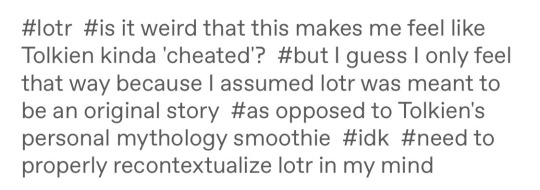
@sataidelenn already wrote an interesting reply, but I'd like to approach the question from a different point of view. Why? Because the first thing I thought about when reading this comment was how I myself have grumbled under my breath about having to wade through someone's "personal mythology smoothie", only I wasn't reading Tolkien. I was reading T. S. Eliot.
Now, I want to preface this by making it clear that I am well aware Tolkien is by no means a modernist. He did, however, write LOTR in England in the late 30s. He was part of the same culture, the same society, and above all the same historical context that produced "The Waste Land" and "Ulysses", and I think we should take that into account when we discuss his work.
Because by the time Tolkien published LOTR, Joyce and Eliot and Yeats had already discussed and applied the mythic method. Was Tolkien aware of their debates? Did he read and appreciate their books? I have no clue. It would take some research to find out, research I currently (unfortunately) don’t have time for. But I do not think it a stretch to suggest that Tolkien might have been moved by the same need that drove other writers to look back at myth, although in very different ways.
Why did Joyce and Eliot feel compelled to return to the narrative roots of mankind? Why did Yeats devote so much time to Celtic lore? Why did Tolkien write a new epic and base it on the Saxon world?
The answer is the same: because they lived at the start of a century that posed more questions than ever, but provided no answers; a century when time and the human mind and the very structure of matter had ceased to be solid, defined, a foundation to rely on; a century torn apart by brutal, inhumane, sensless war.
When you can't find answers in the present and the future is so uncertain it's laughable, you look to the past. Because the thing is, we can talk about "personal mythology" all we want, but myths are never personal. They are universal. They are tied to a specific cultural context, certainly, but they exemplify emotions, truths and tragedies that are common (or supposed to be common) to all humankind, beyond space and time. Myths are supposed to be eternal.
They are also a very effective shorthand to communicate rather complex concepts.
I can write five pages telling my girlfriend that she makes me feel safe, that she is something I've longed for and fought to gain, something I've dreamed about but that I'm scared I'll lose. I could, and I probably wouldn’t be able to convey exactly what I mean.
Or I could say "She is my Ithaca" and you would get it, wouldn’t you?
There are whole books that try to explain the symbolism behind "The Green Knight", but Eliot can offhandedly mention a chapel and he has basically evoked the whole original poem plus the centuries of scolarship that followed.
Tolkien could have had his characters recite long monologues about how they feel like their world has been lost. Instead, he has one of them sing a song by the campfire. An 8th century song, about a warrior in exile. He achieves in a couple of lines what could have taken him a whole book to convey, and he does it in a way that goes straight to the heart, even if we don't know exactly why.
And that's the thing: not all of us spend years researching myths and old poetry. Certainly we don't do it when reading LOTR for the first time, especially if that's when we are 13 or 10 or 8 years old. But we get it anyway. We know myths, especially Western myths, one way or another, as if through cultural osmosis. We understand myths from other cultures too- we may need a bit of context, but we do- and often we find that the bones of the stories are similar, across oceans and centuries.
That means that using myths as the building blocks of your story is an amazingly effective way to cut to the quick, to get to the core of what the narrative is aiming at.
I have seen so many people talk about the feeling they get when reading LOTR, or even just thinking about it: that nostalgia? That bittersweet hurt? That longing for something bright and lost, for a star or a jewel or a land beyond the sea? That, right there. That is what Tolkien achieves by telling stories inside stories, by having his words have a meaning and weight that we would associate with a bard or a preacher, not a fantasy writer. And, as I have discovered recently, it's almost exactly the same feeling you get when reading Saxon poetry.
It's almost as if he chose it on purpose, isn’t it?
That's not all, though.
As both people tagged above(and many others, myself included) have already written, Tolkien doesn’t just use myths as building blocks. He alters them.
Yes, Frodo's hero's journey is not typical. Yes, there are a lot of similarities between the last part of LOTR and the Odissey, but they are not quite the same.
That's because Frodo is not, and can't be, Ulysses. He isn’t a warrior crowned with glory and cunning who reconquers his home and that leaves it because a god has promised him peace if he does. He is a mutilated soldier coming home from the trenches, only to find that he no longer belongs in the home he has bled for.
Frodo is a new hero, for a new age (just like Ulysses was a new hero for a new age, which I rather think is one of the reasons Joyce chose him as the model for his novel. The Odissey was already subversive in and of itself. "An odd duck", as @sataidelenn put it.)
We have to understand just how traumatic WWI was. It's a shift, a break so immense that it changed society, politics, culture, family structures, the idea of hero and even of manhood. The Western World was not the same after 1918. Of course art changed too.
Would Tolkien have written LOTR had he not fought in that war? Probably. But it would have been a very, very different book. The way it deals with war, technology, trauma, peace and friendship-all the things we love about it- are direct fruits of that conflict. I think the way myth fits into it is, too.
I can understand being disappointed that not everything in Lotr is wholly new, wholly Tolkien's invention. It didn’t even occur to be to be, though, because I am used of thinking of it in these terms.
All the myths he uses- from Kullervo to Ulysses to Beowolf to medieval fairy tales- are means to tell a new story. They come back to life, and while we perceive how timeless they are, they end up telling us something that is rooted in time. A new English epic, yes, but very clearly an epic of England between two world wars. A 20th century heroic tale which offers a desperate, brave hope for the future. How can we not love it?
And look, I might joke about personal mythology smoothies to myself all the time, but the reason I keep reading and studying Eliot and Joyce and Yeats is that they do have something new to say, something amazing. You can take them or leave them, love them or hate them, but "unoriginal" is not an adjective you can, in good conscience, apply to their work.
I think, in a weird way, Tolkien is the same.
"In manipulating a continuous parallel between contemporaneity and antiquity, Mr. Joyce is pursuing a method which others must pursue after him. They will not be imitators, any more than the scientist who uses the discoveries of an Einstein in pursuing his own, independent, further investigations. It is simply a way of controlling, of ordering, of giving shape and significance to the immense panorama of futility and anarchy which is contemporary history. It is a method already adumbrated by Mr. Yeats, and of the need for which I believe that Mr. Yeats to have been first contemporary to be conscious. Psychology (such as it is, and whether our reaction to it be comic or serious), ethnology, and The Golden Bough have concurred to make possible what was impossible even a few years ago. Instead of narrative method, we may now use the mythic method. It is, I seriously believe, a step toward making the modern world possible for art." –T.S. Eliot, from Ulysses, Order, and Myth (1923)
#tolkien#lotr#tolkien meta#literature#myth#does this make sense? I hope it does#I really wanted to reply earlier but alas life#you can tell I have put a tiny bit of thought in this over the years uh
20 notes
·
View notes
Note
Do you have any advice for historical fiction authors who want to try harder to use historical queer language without confusing the average reader? It's something that has been a challenge for me and I've been finding your posts helpful, but I was wondering if you had specific tips on how an author could write better queer histfic for the modern reader.
It can be difficult because it is a balance. You probably don't want to just dump a whole heap of molly slang on your reader all at once. But you also don't want your characters to feel disconnected from the real history of the period.
In regards to molly slang you do have to remember that it was somewhat unique to the subculture. Only people involved in the subculture would be familiar with a lot of the slang. So if you wanted to include a character that uses molly slang you could aways have a character who is not part of the subculture, or new to it, who would serve as and stand in for the audience. This way the explanation of slang words can be weaved into the story in a more organic way.
Of course 18th century queer language is much more than just molly slang. It's good to know what the words mean but also what kind of people would be using them and in what context. For example legal writings will talk about sodomy and sodomites while a casual conversation might be more likely to talk about mollies.
While you don't want to overwhelm the reader you also don't want to underestimate them. If you pepper in historical terminology most readers will be able to pick up on the meaning form context. I think the Montague Sibling series actually does a pretty good job of this and it's a YA historical fantasy adventure novel. If Mackenzi Lee can trust her teenage target demo to pick up what a molly is from context then you can certainly trust an adult audience to.
It's also important to remember that it doesn't have to be perfect. Historical fiction is first and foremost fiction. The most important thing in my opinion is to create the feeling of a full fleshed out world. And for queer historical fiction that should be a world that includes queer people and thus have at least some queer language. You don't have to fill a novel with molly slang to do this, just give a bit here and there where it makes sense in context. The best advice I can give is to do the research and understand the history. If you understand it you will be better equipped to figure out when it makes sense to use historical language and when it makes sense not to. If you understand the rules you will better understand when to break them.
I think this is one of the reasons I like the Montague Sibling series so much. Mackenzi Lee has studied history and while her books are historical fantasy that strong base of historical knowledge really helps bring the world of the books to life. Also I just like that she actually used the word mollies in her YA book!
[Spoilers for the Montague Sibling series ahead]
Though it's not perfectly historically accurate the following scene form The Gentleman's Guide to Vice and Virtue feels very grounded in the period. The conversation is between the protagonist Monty and his little sister Felicity. Felicity largely represents the perspective of the popular rhetoric of the day.
"Honestly, Monty, I've never quite understood who's really got a hold on you."
"Do you want to know if I'm a bugger?"
She winces at the crass word, but then says, "It seems a fair question, considering I've seen your hands all over Richard Peele and Theodosia Fitzroy."
"Oh, dear Theodosia, my girl." I collapse backward into the sofa cushions. "I remain inconsolable over losing her." I do not want to talk about this. Especially with my little sister. I came down here for the sole purpose of getting drunk enough to sleep and avoid venturing anywhere near this subject, but Felicity goes on staring at me like she's waiting for an answer. I take an uncivilized swipe at my mouth with my sleeve, which would have earned me a cuff from Father had we been at home. "Why does it matter who I run around with?"
"Well, one is illegal. And a sin. And the other is also a sin, if you aren't married to her."
"Are you going to give me the fornication without the intention of procreation is of the devil and a crime lecture? I believe could recite it from memory by now."
"Monty—"
"Perhaps I am trying to procreate with all these lads and I'm just very misinformed about the whole process. If only Eton hadn't thrown me out."
"You're avoiding the question."
"What was the question?"
"Are you—"
"Oh yes, am I a sodomite. Well, I've been with lads, so ... yes."
She purses her lips, and I wish I hadn't been so forthright. "If you'd stop, Father might not be so rough on you, you know."
"Oh my, thank you for that earth-shattering wisdom. Can't believe I didn't think of that myself."
"I'm simply suggesting—"
"Don't bother."
"—he might ease up."
"Well, I haven't much choice."
"Really?" She crosses her arms. "You haven't a choice in who you bed?"
"No, I mean I haven't much choice in who it is I want to bed."
"Of course you do. Sodomy's a vice—same as drinking or gambling."
"Not really. I mean, yes, I enjoy it. And I have certainly abstained form abstinence. But I'm also rather attracted to all the men I kiss. And the ladies as well."
She laughs, like I've made a joke. I don't. "Sodomy has nothing to do with attraction. It's an act. A sin."
"Not for me."
"But humans are made to be attracted to the opposite sex. Not the same one. That's now nature operates."
"Does that make me unnatural?" When she doesn't reply, I say, "Have you ever fancied anyone?"
"No. But I believe I understand the basic principles of it."
"I don't think you really can until it's happened to you."
The conversation then goes into Monty feelings for Percy which leads to this exchange:
"What are your expectations, exactly? If Percy did feel the same way about you, what would happen? You can't be together. Not like that—you could be killed for it if you were found out. They've been sentencing mollies by the score since the Clap Raid."
"Doesn't matter, does it? Percy's good and natural and probably only fancies women and I am ... not."
While its perhaps a bit of an exaggeration to say that they've "been sentencing mollies by the score since the Clap Raid". It works the word mollies, a word most readers probably aren't familiar with, into the story in such a way that the context makes the meaning pretty clear. While Clap Raid might go over some readers heads they will still get the gist of the meaning behind the conversation and perhaps even inspired some readers to look it up and learn some real history.
This scene also takes advantage of words a modern reader would know like sin, vice and natural. They're talking about queerness in a more-or-less historically accurate way without using too many unfamiliar terms.
The Gentleman's Guide to Getting Lucy then gives us this fantastic scene that uses an 18th century euphemism:
He licks his lips, then nods. I reach for the buttons on his trousers, but he cries, "Wait! And I freeze, panicked I've done something else to muck this up, but then he says, "Just ... slowly, yes? Maybe not ... a full game of backgammon just yet."
And then every inch of him goes red.
"Percy Newton." I sit up over top of him and cross my arms. When he looks back at me with his eyes wide and innocent, I parrot, "A full game of backgammon? What erotic leaflet did you pick up that filthy vocabulary from?"
"None!" he protests, but his mouth twitches. "Some."
"Some?"
Impossibly, he goes redder. "Some erotic leaflets."
"May I have their titles? For purely academic purposes, I assure you."
Again the context allows for the readers to gather what is being talked about even if they've never heard the euphemism before.
And in The Lady's Guide to Petticoats and Piracy they even go to a molly house!
It is our only topic of conversation as the three of us walk to the pub in Shadwell called the Minced Nancy, which from the name alone brands itself a place where mollies like my brother and his beau can be together openly.
Tho I have to point out that while minced is 18th century language the earliest use of Nancy in this sense isn't until the 19th century.
#but also i'm not a fiction writer at all so this is coming from the perspective of a reader/viewer#idk I hope this was helpful and not just me rambling#historical fiction#montague siblings
19 notes
·
View notes
Text

⚡ He came to believe the formulae and theories could never deduce human emotions.
⛓ He lost everything when he immersed himself in Rashomon. Was it all worth it?
TLDR: the free prisoner and the imprisoned warden
context-> 4vs1 game based on dead by daylight = lore known through specific characters quests unlocking sentences describing their past in the form of a personal journal
in-lore context-> INCREDIBLY NEBULOUS STILL 5 YEARS AFTER=> overarching plot intertwining all the characters released in what are essentially death games in a manor playground for psychological manipulation and experimentations drugging participants and having them experience hallucinations (it's real), largely irrevelant right now to blorbos as their past is the point of contention (and used against them 😘), but the lore is MOSTLY lies and trickeries from the participants, which is, hard to swallow for people. evidently the interesting part
=> characters often inspired by historical figures of all sorts
=> tesla vs edison but the twist, is that neither are lying nor telling the truth, pure raw miscommunication from mentor and student, interplay of personalities, edison's scheming and tesla's earnestness, exhibiting traits of their counterpart inspiration
=> two men suffering from the same man's actions and carrying a legacy of violence and lies by omission through it

^ the pivotal event pre-"manor" v what they look like within the context of the Game/Manor post-accident

=> Alva Lorenz = Thomas Alva Edison + Hendrik Antoon Lorentz ( Lorentz Symmetry <-important) => Luca Balsa = inspired by Nikola Tesla ( now for...his father, Herman Balsa, intentionally inspired by Pieter Zeeman, with whom Lorentz shared a nobel prize in 1902 for the discovery and theoretical explanation of the Zeeman effect (<-important) )
actual backstory time . .. . .a story full of unsaid and lack of clarity
alva and herman used to work together on a perpetual motion machine, born from the sketches of herman's idealism, they used to study together and were paired together so that alva would be the "stoic" able to temper such especially when it came to dangerosity, unfortunately, that man disappeared with all the funds, on top of all his family's money, for years, continuing to pay the fee for alva to work without ever sending a letter, alva considered that man a friend despite not even knowing....he had a family he abandonned for the sake of this machine. his wife committing suicide from heartbreak, alva went against his process and deemed it too dangerous, applying safeguards, which was met with herman's ire and calling him a betrayer, the resulting....being an explosion in which herman died,
alva attempts to seal away the documents, but is coaxed into displaying the prototype at an exhibition, the exhibition has him feel the Presence of that man . . .. ..his very son himself standing in front of it, talking passionately, sending him a letter after the chance encounter passionately asking to work under his tutelage on the machine, wishing to be known as the same kind of prodigy inventor as alva is, Lorenz Jr. ,(which, instead of understanding it as inventors and their talented student, most people believe it to be father-son...)
an auction had taken place in the past where alva bought out herman's sketches after his death. you could largely interpret it as sealing away the damned machine, stopping anyone else from working on it
he let luca work on it.
this prodigy student then proceeded to go through all of alva's documents and upon finding his father's sketches, condemned him as a man who would steal and take the spotlight for himself alone, a scammer through-and-through (edison reference) to which, he confronted alva by i suppose. simply shoving him against a bookshelf and electrocuting him, starting a fire. what a good boy.
"i didn't get my answer, even as the current struck his brain."
he gets sent to prison evidently for the death of the famous inventor, apparently has to pay alva's widow a large sum of money (which i deem unclear because she was never mentionned before his actual death?) ALVA GETS RESSURECTED BY AN OBVIOUS SCHROEDINGER CAT CULT, HE BECOMES A PREACHER TO THIS FAITH OF "truth in darkness." meanwhile luca gets, SOMEHOW PARDONED FROM NEARLY HANGED, and is Invited to the manor to find the truth.....while having never stopped wishing to complete the perpetual motion machine.
NOW FOR MY INTERPRETATION I WILL MAKE IT QUICK
even in the story for costumes, it's about luca not letting alva speak himself, alva's issue is largely unwillingness to defend himself against lies. it's written explicitely in his diary, so he just lets luca, imagine, go against him, in this sort of, mentor wanting his student to prove himself and being reluctant to contradict out loud, alva gets fucked over every single. time. and he takes it.
guilt from both parties, shame from both parties, mentor x student,
the prisoner is the one free and the warden is the one imprisoned, that's explicitely their story put in the idea of costumes too, it's insane papli. it's insane.
despite all of this? alva is shown to be happy to find luca a christmas gift. whatever!. whatever.
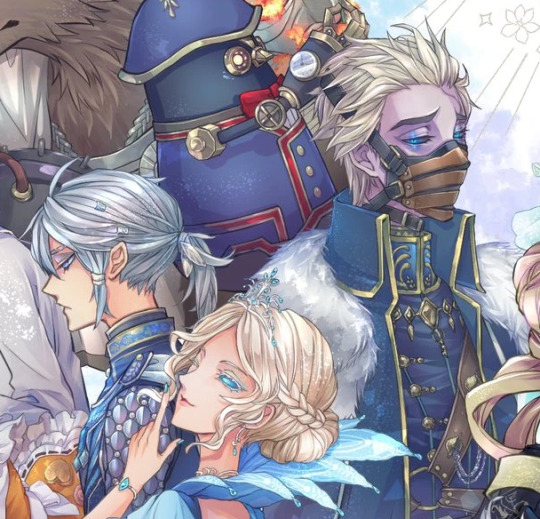
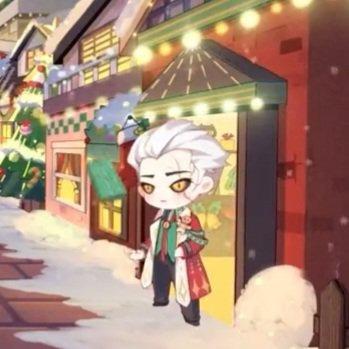

13 notes
·
View notes
Note
okay i have a confession...i never liked ashton...i tried, especially when we found out he has chronic pain and a legitimate reason for being an asshole...but i just can't get on board with him and often roll my eyes at his scenes. and that last convo with laudna made me so frustrated bc it seemed like he was totally emotionally dismissive and wanted to play the "i had it worse" olympics. i've never disliked a cr character before and i don't know what to do about it. any advice? or anything that you particularly like about ashton that could help me get on board a little?
hi anon thanks for asking! unfortunately i can't help you a huge amount because i also! have never liked ashton and have historically had trouble finding reasons to like them. but i will try my best to help
well the first thing i'd say is i don't think you need to find reasons to get on board with ashton. interrogating your feelings about a character is always good to take in the full depth of their behavior, but if you go through that whole process and you STILL don't like them then maybe they just aren't your cup of tea. which is totally valid and acceptable!!! and i know it's not easy to dislike something about a show you love so much, but i'd say just try and sit with that and tell yourself that you're allowed. there are so so many fish in the cr sea and you're far from expected to love each one
that being said if you still want to hear my thoughts here they are! (it got very very long)
i've seen a few people mentioning that ashton might've intentionally started that conversation with laudna because he knew she specifically would be in the position to shoot them down. a sort of self-inflicted scolding, i think. watching the ep, i also got the sense that he was intentionally trying to upset her by bluntly phrasing things to dig into her trauma and i think it makes sense based on what we know about them. maybe he wanted someone to yell at him and tell him he's being weak (in a lot of ways similar to early-c2 caleb's pervasive self-hatred driving him to intentionally seek out places/people with which he is made to feel like shit). or maybe he needed someone else to look him in the eye and tell him "stop hiding and let the people around you help you." maybe they needed a reason to say out loud that they're only with the hells bc they're using them, because that's the only way they can hear themself and how ridiculous and false that sounds. who knows! regardless, i think it's uninformed to say that tal wasn't doing this on purpose. it means something, and it opened up something that will most certainly have some growth and ultimately resolution later
this is kinda separate but we could also get into the details of his word choice, like what did he mean by "i know a loneliness that you don't" was he just talking about a certain kind of loneliness that he perceives to be distinct from the loneliness that many other of the party members have experienced? (worth pointing out that bells hells is a party full of people defined by their loneliness in many ways. food for unrelated thought) is it true that ashton's loneliness is unique to them and no one else in the party? is it even meaningful to put people's loneliness into different boxes? how has loneliness affected the way they distance themself from some people vs. the way they latch protectively onto other people? maybe those questions are of interest to you!
i think ashton is a very meaty character with a lot of complicated stuff going on and tal loves to create characters like this, characters defined by arrogance or a self-aggrandizing belief in their own suffering, or characters who are intentionally and unrelentingly abrasive. they become likable and compelling because of the underlying context and past and often conflicting and changing behavior over time.
it's just that those types of characters will always be a little polarizing, and i personally have a LOT of trouble enjoying tal's characters, because that's just my personal preference. they are complicated and juicy but they historically just do not do it for me. i was very incensed by that conversation with laudna because i am a laudna stan above all else and i thought ashton was being Awful to her, even if i can understand that they knew they were being awful and had reasons to be that way. the important thing is that i recognize it's a double-standard in my own mind and i know that about myself, and i'm not being a willingly narrow-minded jerk to the fans who like ashton and were thrilled by the convo. but i don't have to feel forced to like them and read/reblog meta about how sad they actually are etc etc. you know what i mean?
anyway at the risk of going on a tangent where i complain about that convo for no real reason related to your question, i will stop talking now. hope this helps in some way or another! your feelings are valid and you definitely are not alone in struggling with this character, if the posts and tags i've seen the past few days are any indication. just be nice to people and it will be all good. cr characters are fictional but cr fans are not <3
#anonymous#ask#answered#critical role#cr3#cr spoilers#cr meta#cr negativity#nova shh#yes i Did write two paragraphs about how much i hated that convo before realizing it wasn't needed or productive#so i deleted them#but. if you really want me to complain. and just be mean. i guess you can send me another message idk. i just don't want to be murdered
55 notes
·
View notes
Note
Why do you think there’s a pattern of Theseus being abusive/overly aggressive in Fantastic Beasts fanfic? It’s been driving me up the wall trying to find Newt and Theseus fanfic that doesn’t make them OOC especially Theseus, and idk, in the context of Newt being Autistic I find it disturbing. Like sure, Theseus is hot-headed and loses his temper, he doesn’t always understand Newt, but those traits seem overtly exaggerated in a lot of fandom content.
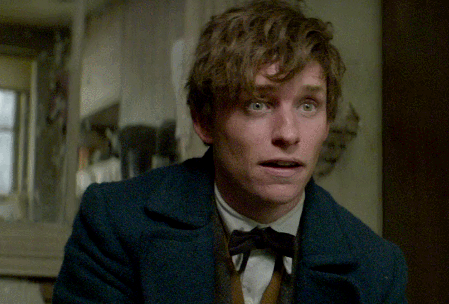
Obsessed with this ask. I have been thinking about it all day, and am just now getting to write it up! Thinking about it in the background of my statistics class almost singularly got me through its sensory and anxiety hell. /sweat-laugh emoji/ So thank you!
Please remember, all of this is based on my own perspectives, knowledge, and headcanons, as well as canon clues. Nothing here is definitive and is open for respectful conversation! (Not directed specifically at you, salamander, just since this is a public blog I like to cover my bases. ^_^)
Buckle up: major autistic info dump incoming
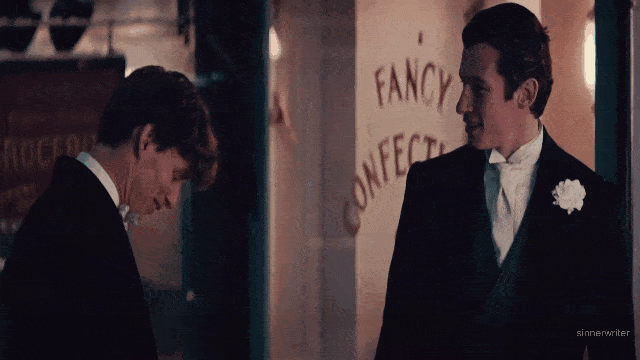
Alright, so, my initial thoughts are that...
Obviously, there was a decent chunk of Newt fic written between 2016 and 2018 before CoG came out, that first film where we really got to see Theseus as a character, for who he really is (especially since they cut that letter from him to Newt at beginning of FBWTFT, that starts with "little brother," which is just pretty endearing). IMHO, this two-year gap means people had a wide open playing field to build the character themselves. Here's a few thoughts on that:
The framework for the entire Wizarding World, narratively, is the Harry Potter series. Boy wizard, shunned by family, isolated from socialization -- Outcasts have always been the backbone of She-who-must-not-be-named's stories. It's compelling. We love it, we lap it up. With only one FB film out before 2018 and Newt being such a unique protagonist, I think it's likely people fell back on the more typical Harry-Dudley trope to create a compelling backstory for Newt, using that tried-and-true fantasy Cinderella-type trope.
Second, from what I can tell, there was a lot less serious consideration of Newt actually being autistic in the early years of the fandom. (I only "joined" relatively recently myself, despite going to the first 2 movies on opening day, but I'm nothing if not fastidious in consuming every scrap of historical content when I develop a new interest, lol.) I've read pages of threads and plenty of "think pieces" attributing Newt's behavior to trauma-related social anxiety and/or his profession as a magizoologist. I absolutely buy the latter (adjusting body language for one's profession), but not entirely the former. (Personally, Newt doesn't strike me as an inherently anxious person--he strikes me as an inherently autistic one who also sometimes experiences anxiety. Discomfort and anxiety aren't the same thing, but people often conflate them, imho.) Anyway, THAT BEING SAID, I've noticed in quite a few fics that people write Theseus as being part of that implied social trauma, via sibling bullying that rises beyond typical sibling harassment. People perhaps tried to explain Newt's behavior by making him, at the very least, overshadowed by Theseus (and ashamed of it) or, at the very worst, abused and/or neglected by his family.
Also, quite simply: people process their own family trauma via fic. I think it's highly likely Theseus just served a sibling or parental role for some people in stories. (The abundance of abusive!Thranduil fic in the LotR fandom in the early 00s is another example of this.) Nothing wrong with using fic to process feelings and life experiences (god knows I do, it's horrifically obvious and always has been lmao), but this bulletpoint is still one explanation for the pre-CoG "Theseus being a dick in fic" phenomenon.
Plus, fanfic doesn't occur in a vacuum. Even when new canon info comes out, existing fic and whatever the going/contemporary fanon is often impact how new writers write their characters, even post-CoG. (And how those characterizations are received by the larger fandom--that reception may subsequently impact how writers maintain or change their characters in the future, imho.)

As for the current reasons Theseus is often OOC in post-CoG fic...
Well, I have my theories, but I am also not entirely sure. However, I feel pretty confident it has to do, primarily, with points 1 and 4.
Leta Lestrange and the Scamander Brothers - Honestly, I think people likely are pretty offended on Newt's behalf for the Leta/Theseus marriage. In mainstream media, we're kind of trained to think that dating your friend's ex is ultimate betrayal--it's difficult for people to imagine a world in which a person who marries their brother's ex is a good person. (...I was once in a friend group where we had all dated the same girl at some point, but we were all either ridiculously honest or autistic so we just--wait for it--talked about it and moved on.) That being said, I never read Leta & Newt as overtly romantic (then again, I also didn't know Bunty liked Newt until the 4th time I watched CoG), so I don't entirely get this one to the degree that I think some people viscerally feel this. But I expect some people see that and assume it says something much larger about Theseus' character than it does. (I do think it says a lot about Theseus that he loves Leta, but I don't think it says the same things about him that some other people do -- I think it speaks more to his similarities to Newt [compassion and positive outlook] than it does to stealing Newt's Hogwarts sweetheart. But I digress.)
Something Did Happen at Some Point - Now, there is undeniably a distance between the brothers that we, as viewers, don't necessarily know the origin of. (So I think I may have mentioned in my letters that [my brother & I] have quite a complicated relationship. // Does he want to kill you? // Frequently.) Have they always been like that? Is it new? Is it because of the age difference? Because they have different personalities? (Though I will argue until I'm blue in the face that they're actually extraordinarily similar people, at their cores.) Is it because Newt got expelled, or because Theseus scooped up Leta, or because Theseus expresses emotion through touch & Newt jerks away from touch he doesn't initiate himself, or because because because because because? I don't know. But there is something there and, based on the "complicated relationship" comment, it sounds like it is something that likely developed over time. So imho - I think some people see that and just lean in way too hard. Like, pedal to the medal, 0 to 60 too hard.
Theseus is Snarky to Newt on Multiple Occasions - Mostly based around how Newt directs his life, carries himself, etc etc. For example, it would be easy to take that whole scene before and after Newt's travel hearing in CoG and assume Theseus is an overprotective, condescending, and ableist prick. But if we look below the surface (and the stage directions in the screenplay help, too. When he says "maybe a little less... / like me. / well, it can't hurt" the instructions say 'not without fondness', or something like that), it's pretty glaringly obvious he doesn't mean to be that way. Even condescending behaviors usually have causal correlates, even if we can't see them on the surface. (Believe me -- and this is something we both touched on in DMs, salamander, I'm just repeating for the sake of the ask -- well-meaning pep talks and encouragement can still drip with condescension when loved ones think you need guidance because they "love you and know better " and you're just too autistic or too idealistic or too naive or whatever.) Ultimately, whether due to a failure to approach these snarky exchanges with grace and nuance, or because it can make a good fic to put brothers at odds, IDK -- but I expect this particular point plays into some people's decisions to interpret Theseus in a way I view as OOC.
Ease of Narrative ~ Nuance is hard - I mean, this one explains itself. Writing characters in a nuanced manner that allows digging into the messy horrible confusion of relationships--embedded as they are within families and societies and personal & general history--is not easy. It takes not only patience and significant effort as a writer, but it also takes a degree of self-awareness and maturity that we all reach at different points. I'm not there yet myself (there's no real arrival -- life's not a perfect graph), but still: My fic writing is very different now at 32 (with 14 years of 'adulthood' and 12 years of therapy under my belt) than it was when I was writing about adults when I was 15. (And, yes, I still have my first posted HP fic up on MuggleNet and FFnet, so you don't just have to take my word for it lmao.) To be very clear, this isn't me being ageist or whatever: I'm just saying that I often get the sense while reading fic where Theseus is reallllly overly aggressive that the writer is sometimes either very new to creative writing (and good for them! we love new writers! keep writing, lovelies!), or else quite young, and thus still acquiring life experience that is going to improve their work as they age, every single day.**
Sibling Experience - Not having personal or narrative experience with an age gap like Newt and Theseus have. I'm an older sibling by 7.5 years, which is close to Theseus & Newt's age difference. I basically half-raised my younger brother, so I have a real soft spot for that kind of sibling relationship, which comes across in most of my fics (LotR & FB). It's hard to imagine the sort of borderline sibling-parental love, responsibility, and anxiety that can permeate those kind of relationships if you haven't experienced or seen it represented in media yourself. This is just a theory, of course---I have no actual data on this being actually related to his OOCness.
What else? What do you or others think?
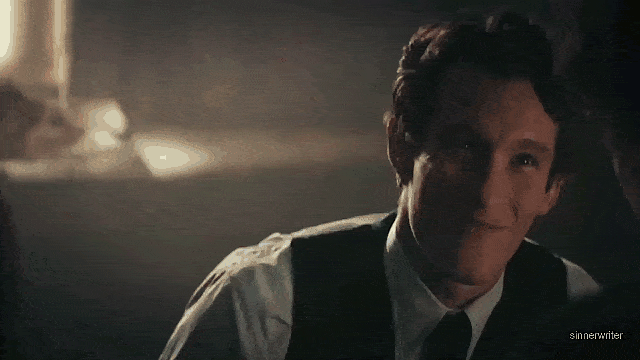
Final very random thought
I also think a lot of people forget that autism runs in families. So yes, Theseus doesn't always "get" Newt (god, no, lol) and he doesn't have guidance on what to do when he doesn't, but it is highly unlikely he hasn't seen behavior similar to Newt's before, whether in a parent or cousins, an aunt/uncle or something else. People *also* tend to forget, IMHO, that subclinical traits are often present in direct family members of an autistic person--Theseus' rigid thinking, for example, isn't necessarily "autistic", but he may get Newt better than people think for certain reasons we never have an opportunity to see in the script. (Not that the movies are paying *that* much attention to the actual research or autism presentations lmao, but I'm just saying it is a possibility). Being able to relate to a smaller version of someone's struggles can simultaneously make one both a better support and a worse one in a lot of ways. (And certain autistic traits can even rub up against each other poorly in different people--I have a few acquaintances that rub me the wrong way because our "symptoms" manifest in very different ways and their natural behavior triggers some of my own sensory issues or overdeveloped sense of justice or whatever. Conversely, my ADHD tendency to be 20 minutes late to every hang gives one of my autistic friends a panic attack every time -- I feel terrible, but all we can both do is try to adjust the behavior around our symptoms. And sometimes the same traits--firmly held beliefs, for example--bump into each other explosively, which I have experienced in fandom myself: two autistic people w diametrically opposing views interacting, but because we process information in similar ways even with very different perspectives, no progress can be made before someone shuts down.) BUT I BRING THIS UP BECAUSE, I do think it's possible to headcanon that some of Newt and Theseus' conflict (which does exist) could even be rooted in differing forms of neurodivergence or presentation of subclinical symptoms.
The world is a big place and there's so many possibilities. These are just some of my thoughts on why Theseus is often portrayed in a way I find to be OOC!
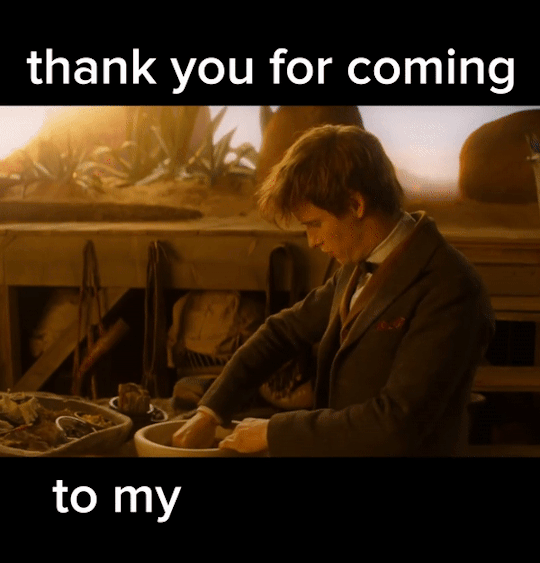
Asterisked footnote under cut -
**I'm trying to convey what Sandra Cisneros does much better in her short story "Eleven." That we, all of us, carry our entire lives and what we have seen inside of us at all times, and I think that's what we bring to our writing.
What they don’t understand about birthdays and what they never tell you is that when you’re eleven, you’re also ten, and nine, and eight, and seven, and six, and five, and four, and three, and two, and one. And when you wake up on your eleventh birthday you expect to feel eleven, but you don’t. You open your eyes and everything’s just like yesterday, only it’s today. And you don’t feel eleven at all. You feel like you’re still ten. And you are—underneath the year that makes you eleven.
Like some days you might say something stupid, and that’s the part of you that’s still ten. Or maybe some days you might need to sit on your mama’s lap because you’re scared, and that’s the part of you that’s five. And maybe one day when you’re all grown up maybe you will need to cry like if you’re three, and that’s okay. That’s what I tell Mama when she’s sad and needs to cry. Maybe she’s feeling three.
Because the way you grow old is kind of like an onion or like the rings inside a tree trunk or like my little wooden dolls that fit one inside the other, each year inside the next one. That’s how being eleven years old is.
#answered asks#salamanderscamander#apologies in advance for any typos#anyone can reblog but i ask that you do so with good intentions and respectfully communicate#:)#boundary: i am not open to having discussions about my continued participation in the fantastic beasts fandom - thank you#fantastic beasts#newt scamander#theseus scamander#autistic newt scamander#big brother theseus scamander#scamander brothers#fb fandom#fantastic beasts fanfic#fantastic beasts headcanons#fantastic beasts meta#long post#also i'm sorry for using so much medical model terminology -- i'm in a human dev phd program and my vocabulary is a horrific mezcla of#self-advocacy language & research language - its not ideal i know
42 notes
·
View notes
Note
Hi,
So I finished the novel Queen's Gambit by Elizabeth Freemantle and am now extremely angry need to decompress and filter out her garbage I'm shocked that Penguin House published this book and that it is getting made into a movie. To portray young Princess Elizabeth as willingly seeking Seymour out and seducing him is vile. Parr's bitchy handmaid Dot finds them in bed together. What on Earth? No evidence for that. Then Catherine Parr gets angry, blames Elizabeth and they don't reconcile after she leaves. Heartbreaking. Plus, the portrayal of Catherine Parr is horrid there is no evidence she or her stepdaughter Meg were raped during the Pilgrimage of Grace, a devout woman like Catherine wouldn't be contemplating killing either of her husbands, or rejoicing in the prospect of being damned to hell as she puts it after Henry VIII dies. (Maybe with Henry she would think about it but not actually go through with it). I got the impression that this author had an anti-Christian as well as anti-Elizabeth attitude. Tried Sisters of Treason another book of hers but it was also bad. I want to send her an angry letter now calling out her disgusting portrayal of young Elizabeth. Did you send in a review or a note to the author after you read it?
Don't forget Dot's final monologue about Why Elizabeth Is Such A Bitch -- It's Almost Understandable That She's Such a Bitch-Slut.
It's common with historical fiction, really, to not understand the way that religion historically worked. It's very easy to put our feelings on religion, whatever they might be, onto historical figures in an attempt to make them More Like Us, but the simple reality is that they were living in a totally different cultural context. Characters are either religious fanatics so extreme that they make Frollo think "Hm, maybe they're overdoing it a tiny bit", they're Secretly Atheists, or religion just doesn't cross their mind ever (unless, in Tudor media, it's to establish them as a Cool Modern Protestant.)
As for what I did...honestly, put the book aside and thought about every single decision in my life that had led to me both reading and finishing it. As you can see by the fact that I still remember it in vivid detail, it holds a special place in my Hall of Shame. (And it isn't even batshit insane enough to be FUNNY, unfortunately.)
But, my piece of totally unsolicited advice that you are perfectly free to discard at your earliest convenience? ...when you do medieval Irish stuff. Or medieval Celtic stuff in general. You will NEVER see your field faithfully or even sensitively portrayed on page. Every single depiction you get will be based on old stereotypes, colonialist tropes, and outdated information. I've read things about my faves, in particular, that would make most people's hair stand up on end. Things that are truly, deeply vile, that are on par with the depiction of Elizabeth here, or even worse. And it is easy to be angry, it's understandable to be angry, and God knows that my friends have heard me ranting in the DMs. And when I was younger, I was, regularly. And then I got exhausted, because anger is exhausting, especially when it's you and your anger versus a tidal wave of misinformation. I didn't stop getting angry, no. But I started to use it as a tool, not as an explosive -- I let it fuel me, I used it for my scholarship, putting all these different pieces of pop culture about my field in conversation with one another and noting common trends, as well as making comparisons to trends in other areas to figure out what, in our contemporary cultural landscape, is causing us, as a general group, at this point in time, to portray these things in a certain way, as well as how we have portrayed them over time. I have built my career, at least in part, on defending the undefendable, on studying the ink blotches of historiography to see where the historical or literary records meet the popular image, specifically looking at figures who are frequently portrayed as villainous and monstrous. I don't deal in happy endings, I can't when I step in after their final death scenes, after the point where even the possibility of their deaths meaning *something* is gone, because they don't even get the satisfaction of being well remembered. I never expect to see my faves well portrayed -- sometimes, I'm surprised, but it is truly, deeply, RARE.
You send a note to an author, no matter how well-intentioned, and it's easy to write off. The author submitted that work for publication, it's done. They're still getting royalties off of them, whatever that means in the current hellacious publishing landscape, in this case, she even has a movie. They might care, but honestly? They probably won't. They can dismiss you as a crazed, unhinged fan, regardless of how much thought and effort you've put into the critique. You've wasted all that high quality, undiluted anger for something that won't have any tangible effect. My advice, instead? Feel your anger, let the hate flow through you, especially when it reflects biases like sexism, racism, and homophobia, sharpen it, and then use it -- it doesn't have to be in conference presentations or journal articles or any of the trappings of academia, but use it.
Write reviews, absolutely, put it into conversations with other pieces of Tudor and Elizabethan fiction, especially about young Elizabeth (Hell, compare it to, say, Elizabeth R, Becoming Elizabeth, Young Bess, or Lady Bess (Toho 2014/2018), just for examples of the young Elizabeth's life off the top of my head that dramatize the life of Elizabeth), see what other people have said, in journal articles, sure, but also in blog articles or GoodReads reviews online, without necessarily even talking to them, but just to get a survey of what they think and why they think it, and see what you can do. Why do we want to portray Elizabeth this way? Is it a desire to "knock her off her throne?" Portray her as a nymphomaniac bitch slut to contrast with the "Gloriana" image? Is it that we're uncomfortable with the topic of CSA? Or we don't like to think of it as something that historically occurred? (Especially when you compare it to the ongoing bimboification of Katherine Howard, even in allegedly sympathetic biographies.) Is it that we still don't want to believe that it could have happened? That we're willing to give more sympathy to a man than to a child? Some combination of all of them? And are we seeing progressively more nuanced portrayals, or are we seeing more of the same across the board? (I feel like Seymour, at least, has gone from being a romantic hero in Young Bess to being portrayed as genuinely manipulative, even if the execution is still lacking.) On the reverse side, are people more willing to defend, say, Elizabeth I and Catherine Howard than other historical women, specifically because of what they represent and because of their high profile status? Is there a double-edged sword here? Let your anger fuel you.
11 notes
·
View notes
Note
Do you think it’s important to read Mila Finelli’s mafia series in order? I was very intrigued by your descriptions :) thanks!!
Oh yay! Everyone who is okay with mafia books should read them imo (no judgment to those who aren't--if you're open to it, though, I think they're a great intro, especially if you read historicals; for those who haven't heard yet, Mila is Joanna Shupe).
As for reading in order, the only two books you MUST read in order are Mafia Mistress and Mafia Darling. Those are Fausto and Frankie's books, and they are a duet. Mistress ends on a cliffhanger and leads directly into Darling, Fausto and Frankie are the POV characters.
Reading them in order... I am always a completionist so that's my preference, but you don't have to other than the duet, no. You will be "spoiled" obviously for things that happen. Mafia Madman follows Darling and the hero of that book is a main villain of the other two; you do get context into why he is a nutter butter based off reading the other two, but it can be read alone. (Madman is my ULTIMATE favorite, but again these really are all 5/5 reads for me, overall. Madman is just an all-timer for me. I've reread it multiple times lol. Once I have them all in paperback I'll probs reread the others and they may also enter the All-Timers Club lol.)
Mafia Target is the only book that isn't m/f; it's m/m and one of the primary heroes is Fausto's (hero of the first books) son from his first marriage. You do get spoiled about where his (Giulio's) subplot from those books goes, as well as some other stuff, but it can be read alone.
I think Mafia Virgin is probably the most separate...? Of the books. Just because there is a lot of political interplay between the heroes of the first four books, and the hero of this one is more separate (though all the heroines in the series are sisters). It can also be read as a standalone, though you do get cameos from everyone, especially book 3's couple.
So the short is: yes you can read them out of order, aside from Mistress and Darling, but I would recommend all of them.
More specific moods recs:
Mistress/Darling is very "dom daddy"/"bratty heroine", super classic, a lot about the age gap, she was originally brought over to be forcibly married to the son and ends up with the dad, she's independent but does have more of a traditional arc.
Mafia Madman is, along with Target, probably the darkest of the series, but it's a ROMP. The hero is a villain and again, a nutball; the heroine is this very defiant, very sexually liberated girl who he literally puts in a cage in the beginning, only for her to respond by doing naked yoga, knowing he's watching her on a camera. They have a VERY true enemies to lovers arc, a lot of her topping from the bottom, claims of hatred while clearly falling in love. I adore it.
Mafia Target is an assassin/target romance, a lot of cat and mouse, a lot of the two of them literally fighting before giving in to this magnetic, inevitable attraction and falling in love. It's the most "oh my god this is fucking romantic" romance of the series, imo. It has a love at first sight, fated mates vibe. They're both wacky, but they fucking LOVE each other.
Mafia Virgin is the softest, gives strong "Beauty and The Beast", "teach me how to be gentle with you" vibes, forced marriage, huuuuuge emphasis on breeding kink because they need to get her pregnant within six months. Hero is big and has been told he's stupid (he's so not), heroine is delicate but strong and super smart.
#romance novel blogging#book recs#all of these books have scenes that are written into my brain lol#which is always a good sign
7 notes
·
View notes
Note
Love your pnp posts. I don't know if you've been asked this before, but how do you interpret Darcy as an autistic character?
Thanks!
It may be nitpicky, but in some ways, I don't interpret Darcy as autistic. I headcanon him as autistic. There's a lot of overlap, but they're not quite the same.
I think a strong argument can be made that, in canon, he experiences a fairly broad range of persistent social discomfort as well as simple distaste, especially (though not only) in unfamiliar situations or around unfamiliar people. In the context of unfamiliarity, he specifically mentions having trouble catching the tone of conversations or showing an expression of interest, which could be interpreted in many ways (he doesn't have any real struggle and is just making excuses, he does have a bit of a struggle but just can't be bothered to try, etc).
I wouldn't say I interpret it as signaling that he's autistic, which would make little sense historically speaking. But I regard him more favorably than the people in the parenthetical examples do, and I enjoy imagining that he's autistic (like me!). Details of his characterization like this just make it easy to do so.
When he first becomes interested in Elizabeth, for instance, he responds by listening to her talk to other people in order to work himself up to speaking to her himself, even though he's a very articulate and confident (in fact, arrogant!) person. This could be read many different ways. But it fits with an autistic Darcy whose arrogance and verbal skill don't negate how difficult it is for him to navigate a situation like this.
At Pemberley, the grand transformation narrative is complicated by multiple things. Charlotte realized back at Rosings that Darcy must at other times be quite different from how she'd known him based on his interactions with Colonel Fitzwilliam, a cousin he is very close to, and her conclusion is strongly backed up by Mrs Reynolds's account. Some people are very responsive to their environments without being NT, and he could be one of them. There are more unfavorable interpretations possible. But if you're already headcanoning him as autistic, it's another thing that fits.
In this view of him, when he's out of his comfort zone of clearly-defined social roles, most of which he's been trained for, it's unsurprising that he seems cold and intimidating to other people, even by the end of the book, after the "transformation". And that's an impression that a lot of autistic people can give. In a more straightforward environment where he can fulfill direct obligations and very specific roles he knows well, he shines—and that's not intrinsically autistic but does square easily with it.
But even at Pemberley, and even after his character growth, there is a formality about him that he can't seem to shake. Mrs Gardiner remarks on it after meeting him, though it doesn't trouble her good impression of him. In her letter about his various heroics, Mrs Gardiner brings this up again in terms of his lack of liveliness; this and his deep stubbornness are his only real weaknesses in her view.
He could just be a formal and severe person. Some people are! But this consistent strain of stiff formality about his manner and language, whether he's being haughty or pleasant, fits naturally with the headcanon.
I can go on and I have a lot of times, but that's the sort of thing I'm thinking of. It doesn't mean he is autistic as written, or that I'd argue he is, but that I can imagine him that way without difficulty and it makes me happy to do it.
My more formal interpretation of all this would be that Darcy is basically a complex and nuanced version of the kind of man Wollstonecraft pointed out in Vindication of the Rights of Woman:
Where are they [young women] suddenly to find judgment enough to weigh patiently the sense of an awkward virtuous man, when his manners, of which they are made critical judges, are rebuffing, and his conversation cold and dull, because it does not consist of pretty repartees, or well turned compliments?
That's not to say that that's necessarily where Austen got the idea for him, or that she got it from any specific source, just that this was a recognizable type in their social world that P&P is elaborating on and examining (among other things). So it's not incredible that the details of the type are amplified in a way that fits really neatly with an autistic headcanon. It's still headcanon to me, but it's headcanon that the novel makes very easy.
#anon replies#respuestas#nice things people say to me#lady anne blogging#austen blogging#fitzwilliam darcy#anghraine's headcanons#rare breed of attack unicorn#long post
31 notes
·
View notes
Note
Rose, salmon
From this ask game!
ROSE: Is your main character right?
About specific things? Yeah, it happens. You can generally at least see his point on things even when you disagree. Overall, though? Haha, no. Nooooooooooooo. Not even a little bit. I have NOT done my job whatsoever if you come away from this story thinking Gabriel was right. Understanding his perspective is one thing - my goal is certainly for the reader to understand his reasoning, and for it to make sense within the context of his own internal logic, because I've developed him to be a very specific type of person with a very specific internal logic and worldview that is, in a manner of speaking, very much intended to culminate in certain decisions he makes. Agreeing with those decisions, or with his conclusions at certain points in the story, is another matter entirely.
SALMON: How much research do you do for your writing?
Apologies in advance for the length omg.
It varies, but given that I write predominantly crime fiction (across different combinations of genres/subgenres), it's usually pretty extensive. I don't always do a ton of research prior to the first draft of a story, unless said research is integral to the main plot - ie. for The Dotted Line, I had to do a certain amount of baseline research into various prison-related topics before even starting (that was over 2-3 months back in 2013). The bulk of my research actually tends to get done during the first draft composition. This was definitely the case for Life in Black and White, which involved easily over two years of ongoing characterization research - especially for Gabriel, who is a very complex and multifaceted character (especially for a 17- to 19-yo writer, lol... I was extremely out of my depth with this entire story to be honest, but I took the research seriously and I daresay the effort paid off), but Jeff was no picnic to research either. Among other things, I had to do lots of legal research, research on various mental illnesses and psychiatric treatments (most of the major characters either have mental health issues or are mental health professionals), research into criminal profiles and typical patterns, and setting research.
For Supernova, I'm in a completely different genre from my comfort zone (speculative/dystopian), but it's still quite research-heavy - I have a fair bit of light worldbuilding to do (we're still in "our world," but in the late 21st century), and most of that is heavily based on real climate change projections. Also have to do a fair bit of chemistry-related research on the hypothetical compound the MC's professor discovers. Also, some relevant historical research (most of that is already done, but I need to supplement and refresh it here and there as most of this was done in 2018-2019).
12 notes
·
View notes